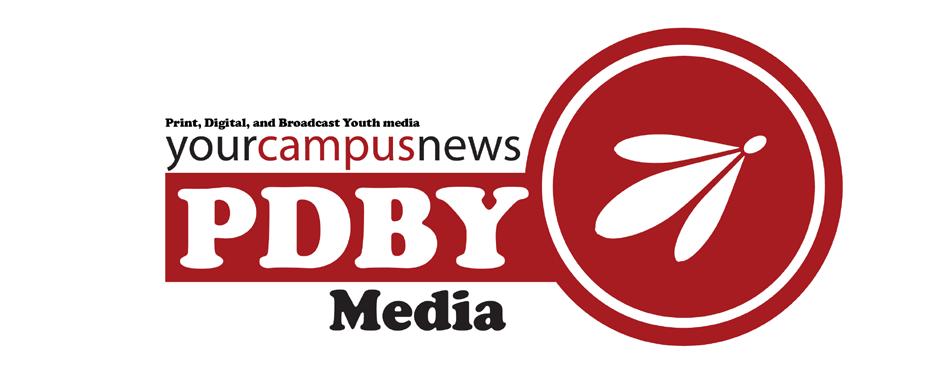








Why are some degrees or fields of study seen as superior to others? I was confronted by this question again this week, though it has come up many times during my journey as a humanities student. I believe there are two major factors.
Firstly, the matter of perceived difficulty. I’ve encountered many individuals who deemed a BA to be “easy” and “laidback” compared to their BSc, BCom or BEng. Completely ignoring the fact that these same individuals would most likely fail miserably when asked to write an essay on the postmodern techniques used in Toni Morrison’s Beloved to illustrate the inadequacy of language. If I can acknowledge my inability to do a titration practical, write an economics paper or program in Python, why can’t
you admit that you would struggle to pass my modules? Even within the different faculties there is a culture of superiority. For example, in EBIT, some regard computer engineering as more difficult (and consequently, better) than computer science.
Secondly, societal valuation. Our society tends to place more value in mathematics and the sciences than the arts, so much so that if you do not excel in these subjects, you are easily deemed as less “smart”. However, should one type of intelligence be favoured above another? We need all of them to thrive as a society. Yes, scientists and doctors help to enhance our lives, but what would happen to the world if we had no one to write, direct and star in our favourite Netflix series? No rugby or
football matches to unite us in supporting our chosen team? No teachers to educate our children?
As value and financial gain are closely linked in a capitalistic world, it seems important to note that there are many job opportunities in the so-called “soft sciences”. Furthermore, according to a New York Times article, “by age 40 the earnings of people who majored in fields like social science or history have caught up” to STEM majors.
Thank you for coming to my TED Talk. I leave you with a final request: let us start appreciating the complexity and importance of every degree and career.
Karla van DykCopy:
Karla van Dyk
Lize Behrens
Luke Best
Nicholas da Costa
Kamogelo Thando Mabe
Luka Joubert
Jade Fabri
Lwando Mfundisi
Nolwazi Sangweni
Busisiwe Yaka
Layout:
Katherine Weber
Joshua Hunter
Annelize Breed
Owam Ngwneya
Izabel Stickells
Kirsten Minnaar
Franco Marais
Multimedia:
Masehle Mailula
Sharon Dumba
Katharine O’Ehley
Sechaba Ntshehi
Cleo Qin
Nothando Mhaule
Cletus Mulaudi
Web:
Luka Joubert
Carl Unathi Ndlovu
Keegan Bosman
Social Media:
Precious Maphupha
Thabang Moloi
Tsholofelo Mogotsi
Sibusiso Paul Mabotja
PDBYMedia, formerly Perdeby, is the official independent student newspaper of the University of Pretoria. We are committed to providing fresh and entertaining news content for UP students, by UP students, about UP issues.
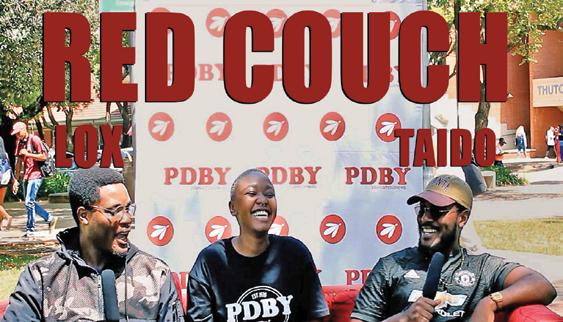
PDBY appreciates that freedom of speech is an inalienable right enshrined in the Constitution of the Republic South Africa. We encourage our readers to engage in discussion and debate on issues that affect them through letters to the Editor, comments on our website, tweets, or posts on Facebook. We ask our readers to keep the following in mind:
1. PDBY will not edit letters, comments, tweets, or Facebook posts in any way.
2. PDBY will label letters, comments, tweets, or Facebook posts as opinion. These do not represent the views of PDBY in any way.
3. The PDBY editorial must approve letters, comments, tweets, or Facebook posts before they are published.

4. PDBY will not publish letters, comments, tweets, or Facebook posts that are defamatory, or libelous, or that contain offensive content.
Editorial
Editor-in-chief carel.willemse@up.ac.za
Carel Willemse @Ed_in_Chief
Editor editor@pdby.co.za
Katherine Weber @pdbymedia
News news@pdby.co.za
Banathi Nkehli Deputy News news@pdby co.za
Features features@pdby.co.za
Kirsten Minnaar @kirsten_minnaar
Entertainment entertainment@pdby.co.za
Rebecca van Bessouw
Sport sport@pdby.co.za
Franco Marais
Copy copy@pdby.co.za
Karla van Dyk
Visuals visuals@pdby.co.za
Katharine O’Ehley
Multimedia multimedia@pdby.co.za


Masehle Mailula @masehle_mailula
Layout layout@pdby.co.za
Leah Rees
Web
Luka Joubert webeditor@pdby.co.za
Social Media
Precious Maphupha socialmedia@pdby.co.za Marketing marketing@pdby.co.za
5. PDBY reserves the right to practice discretion when publishing letters, comments, tweets, or Facebook posts.
6. PDBY reserves the right to publish any content we receive unless the sender specifically requests otherwise.

7. PDBY reserves the right to retract a letter, comment, tweet, or Facebook post after it has been published.
8. PDBY will not accept responsibility for any consequences the author of a letter, comments, tweets, or Facebook posts may experience as a result of the letter being published.
9. PDBY will only publish letters between 150 and 200 words.
10. PDBY will not publish letters unless the writer confirms their full name, student number and contact number. PDBY will not publish this information, we need it for our records.
On 15 March 2023, the PSC UP, alongside a coalition of societies featuring: UP&OUT, Tuks4Climate Justice, South African Student Congress (SASCO), Socialist Youth Movement, Black Management Forum and other societies, conducted a demonstration to commit the SRC to withdraw from the agreement with SAUJS. The coalition was met by SRC counterparts - the president of the SRC, Njabulo Sibeko, and deputy secretary of the SRC, Christo Pretorius. Sibeko and Pretorius accepted the memorandum. PDBY bore witness to these events.
The demonstration
On 14 March 2023, the PSC UP posted a flyer on Instagram announcing their demonstration outside the DSA building as a part of a coalition of societies that collectively goes by “Students Against Apartheid”. The participants present at the demonstration aimed to hand over a memorandum of demands to the SRC relating to their dissatisfaction with the SRCs decision to work with Tuks SAUJS. The demands read as follows: “The multi-stakeholder coalition hereby encourages the Student Representative Council to: a) Receive the memorandum… b) Commit to withdrawing from the agreement with SAUJS and refusing funding from any apartheid states…” The memorandum was received by the president, who signed the memorandum and was given until 23 March 2023 to agree that the SRC would wait until 23 March 2023 to provide feedback on their decision.
Upon receiving the terms of the coalition, the floor was open for speakers to raise their concerns. Sibeko and Pretorius would then address former secretary of the SRC Tarik Lalla in asking him, “Where did you get the minutes?” to which Lalla responded, “Why does that matter, we are here to hold you to account.” Sibeko would continue by questioning the legitimacy of the minutes. He would go as far as to question the presence of his signature on those minutes, stating, “Those minutes do not have my signature.” When presented with those minutes, it was ostensibly proven that his signature was on those minutes. Hisresponse in the face of those minutes was, “then someone forged my signature, that is not my signature.”
[Scan the barcode below to compare the signatures on both
documents.] Following this interaction, Sibeko and Pretorius left the demonstrators before the gathering would ultimately be adjourned.
The coalition was dissatisfied with Sibeko’s response. Sicelo Ngwenya, co-ordinator of SASCO UP stated, “What he did is indefensible, the whole SRC is indefensible…the fact that he, himself voted in the meeting in favour of this decision and is now saying he doesn’t know the minutes… we feel kind of disrespected here… we can’t have a president who undermines us.” Cam Rodrigues, chairperson of Socialist Youth Movement states, “We as students do not want Zionist money in our institution. We don’t want Zionism influencing any aspect of
our lives. The fact that the president did not focus on the actual issue with the minutes was the problem, instead he was focused on how those minutes were released.” Natalie Kapsosideris, chairperson of Tuks4Climate Justice, said, “What this partnership indicates is that the SRC can be bought, they can choose sides, they are allowed to help some societies while they discriminate against other societies.” Meara Pillay, chairperson of the PSC UP, states, “I am pleased that the memorandum has been signed, but his reception of the content of the memorandum was sub-par.” Speaking on behalf of UP&OUT Rodrigues states, “regardless of the intimidation tactics and bribery from the SRC, we [UP&OUT] will stand for human rights.” The intimidation that Rodrigues is referring to concerns an email sent from Pretorius’ official SRC email concerning UP&OUT’s participation in the demonstration wherein he states, “I desperately ask UP&OUT to please withdraw themselves from this demonstration for the sake of being apolitical and serving a broader queer community… and it will help UP&OUT with the funding I know they need.” Chairperson of the black management forum, Varnu Govender, states, “The SRC currently flip-flops on the matter, an SRC with a culture of supporting the people of Palestine and now looked at this situation and said, ‘I think we should accept this Zionist blood money.’”
The reception on the other side
In response to this, head of Tuks SAUJS, Sasha Said does not agree with the opposition to the SRC’s decision stating, “I think it’s difficult, the part that I struggle with is that it feels like an exclusion. Because we believe in Zionism, because we are a Jewish organisation.” On the notion that SAUJS approached the SRC to “bribe them” Said clarifies, “In the meeting, they said ‘do you have any demands for us that come with this partnership?’ I said no, I have a request that is there a chance that during Israel Apartheid Week, you do not make a comment for either side? However, if you make the comment, freedom of speech.”
Sibeko and Pretorius did not comment before PDBY went to print. Any comments received will be reflected on pdby.co.za.


Katharine O’Ehley
Welcome to the rainbow nation!’
With the most anticipated arrival, King Philippe and Queen Mathilde of Belgium departed for South Africa on Wednesday, 22 March for a five-day long state visit. The reasoning for the visit according to the presidential press release is to “expand and strengthen” the relations between the two countries with focal points of investment, trade, tourism and foreign investment.
According to a media release by the University of Pretoria, Her Majesty Queen Mathilde attended the social entrepreneurship roundtable event that discussed sustainable development goals (SDGs) that formed part of the state visit to South Africa. The Department of Science and Innovation announced that His Royalness King Philippe, visited the Council for Scientific and Industrial Research (CSIR) on Thursday for a visit to the indoor energy storage testbed facility.
A second-year education student, Monique van Niekerk said: “It is such an amazing honour for members of the Belgium Royal family to take their time to visit Tuks. I would have never thought that they would visit Tuks and I hope they enjoyed their visit.”
Micaela
LiebenbergOn 15 March, The PSC (UP Palestinian Solidarity Committee) protested the new partnership between the SRC and the SAUJS, (South African Union of Jewish Students) in front of the DSA building. The demonstration took part in IAW ( Israeli Apartheid Week) which, according to BDS (Boycott, Divestment and Sanctions) is a “tool for mobilising grassroots support on the Global level for the Palestinian struggle for justice”. PDBY investigates further.
The peaceful demonstration during IAW
On 26 January 2023, a special meeting was held in which the chairperson of SAUJS, Sasha Said, proposed a partnership between SAUJS and SRC. 11 votes were cast in favour of such a coalition. Since then, the PSC has opposed such a partnership, claiming that SAUJS is an “anti-PSC organisation”. A peaceful demonstration was held during IAW by the PSC to express their dissent. The PSC has joined forces with societies such as SASCO, The Socialist Youth Movement, UP&OUTw, MSA, Tuks For Climate Change, BMF, BDS, and Footnotes Philosophy. “The Purpose of Israeli Apartheid week is to bring awareness to the reality that Israel is conducting apartheid similar to the one we had in South Africa,” said Meara Pillay, chairperson of PSC.
Is Israel an apartheid state?
During the special meeting, a question was brought in about the demographics of Israel and whether it can be deemed an apartheid state, to which Said replied that she does not have the right to define what Apartheid is, but it would not be fair to describe Israel as one since every citizen has the right to vote. “I don’t agree with that statement,” said Pillay, “Palestinians in Gaza are separated from Palestinians in Westbank, similar to the land displacement in KZN.” She continued to state that Palestinians do not have the right to travel, the right to express their heritage, freedom of speech, and no self-determination.
“[Israel Apartheid Week] is there to spread information about what is going on in Palestine,” said Cam Rodrigues, Chairperson of the Socialist Youth Movement at UP, who also participated in the demonstration in solidarity with the PSC. “It’s not to spread any hate. A lot of people don’t know what is going on in Palestine.” She further stated that students in the university should be knowledgeable of this issue since she believes that the Israel-Palestine conflict is a humanitarian crisis. “Injustice somewhere is injustice anywhere.”
SAUJS strikes back.
In response to the demonstration, SAUJS released a statement on 15 March stating that the behaviour exhibited on campus that day was clearly discriminatory and exclusionary. According to the statement, members of the SAUJS were victimised, and that the PSC concealed their anti-zionism with antisemitism.
Another statement released on 26 February called PSC’s attempts to have the SRC break relations with SAUJS “racist and discriminatory”. SAUJS maintains that their partnership was established on democratic grounds through voting. According to their statement, those who are against their partnership are “pushing their own political agenda ahead of the welfare of our students.”
In an article released by the South African Jewish Report, “’ Pure Jewish hatred’ behind protest at Tuks” by Tali Feinberg, Said, commented during an interview that the demonstration
was a “blatant exclusion and isolation of Jewish students. They were saying that Zionism doesn’t belong on campus, which is blatant antisemitism.”
Is the PSC antisemitic?
When asking Pillay about SAUJS labelling PSC as antisemitic, she responded that because the mother body of SAUJS is the Zionist federation, they rely heavily on the narrative that the PSC is violent and antisemitic in order to discourage students from supporting them. “We’re not against Judaism as a religion; we’re strictly against Zionism as an ideology. Ultimately our goal is to abolish apartheid, and the only way we can do that is to put enough pressure on the Israeli government to comply with international law, and we have to do that by means of boycotting, divesting, and sanctioning. Apartheid should have no place in our society.”
Lara
OosthuizenOn 8 March, AfriForum Jeug organised a protest on campus against the University of Pretoria’s racial classification policies. The group submitted a Promotion of Access to Information Act (PAIA) demanding that the university release the usage of the racial classification data to the public. PDBY explores and investigates.

Who is AfriForum Jeug and why does the issue matter?
AfriForum Jeug is an Afrikaans group focused primarily on promoting the rights of young Afrikaans speakers. However, in this matter, they were fighting for the rights of all young South Africans. René van der Vyver, spokesperson for AfriForum Jeug, stated that they believe “the abolition of racial classification will benefit all South Africans because young people should be selected for study opportunities and bursaries on the basis of merit, and not on the basis of skin colour”.
The protest, and when to expect feedback from universities

The protest started at 09:30, with members
of AfriForum gathering at the Piazza and marching to the Admin building where they submitted the physical PAIA application and they submitted a PAIA application to all public universities of South Africa but, according to Van der Vyver, only had a physical submission on the UP campus “to demonstrate the nationwide submission of the PAIA application on public universities’ racial classification policies”. AfriForum expects to receive feedback from all public universities on 8 April, as universities have 30 days to respond to the submission of the PAIA application.
Thoughts from students outside: AfriForum’s main target demographic
When asked, non-Afrikaans students said that they felt uncomfortable that an Afrikaans group is dealing with this matter. Mapule Shai said, “We can see how the classification is seen as an outdated and archaic application, as we are all studying at a diverse university and equal society.” Both Shai and Kiarra Ephraim referred to the “statistical merit” of racial classification and its “benefit of appropriate resource allocation to each racial group”. Ephraim said, “We need to remember
that racial classification is a useful tool in correcting the wrongs of the past, as people of colour have been at a disadvantage and have not had access to the same level of education
or opportunities as opposed to Afrikaans speakers”. Abolishment of universities’ racial classification policies will hinder their ability to help the students that they need to classify.”
Micaela Liebenberg
On 9 December 2021, UP released its first SDG (Sustainable Development Goals) report, a framework based on several themes that is focused on a period from 1 January 2020 to 31 December 2020. Heystek Grobler, a PhD researcher at the University of Pretoria, and Natalie Kapsosideris, chairperson of Tuks for Climate Justice Society, share their views on how the university has committed to achieving its SDGs. PDBY explores and investigates.

What is in the SDG report?
According to the report, the strategy to implement their goals is approved by the 15-year long-term plan, which “serves as a blueprint for the university’s role as a national asset”. This includes responses on national, regional, continental and global issues. The report consists of several institutional goals that correspond to their relevant SDGs- one being institutional sustainability, which includes climate action, responsible energy consumption and affordable clean energy.
A Radio Astronomer weighs in.
While Grobler is a Resident UP researcher, he also does research at HartRAO (Hartebeesthoek Radio Astronomy Observatory). When interviewed about whether UP is making meaningful contributions to achieving clean energy, he commented that an important discussion point on university management level is how green energy can be implemented. “While we rely on power supplied by Eskom, there is a push to use solar panels for energy consumption.” The university relies on backup generators for power during loadshedding, which according to Grobler, leaves a large carbon footprint because of the use of diesel. Grobler’s field of work, which includes optical astronomy and, monitoring weather patterns and the atmosphere, is integral to ensuring optimal conditions for observation.
Grobler emphasizes the danger of global warming, referring to the recent flooding and tornadoes in Africa as a result of the unstable atmosphere. He further states that, on average, the global temperature has risen from 1 to 1.5 degrees, which has affected South Africa’s rainfall. This means some regions will experience extreme weather conditions. Grobler also notes that the effect of global warming and climate action is delayed: “Unfortunately, global warming will get a lot worse before it gets better.”
Tuks for Climate Justice thinks UP can do better.
Kapsosideris shares Grobler’s sentiments, stating that Tuks for Climate Justice believes that the best course of action would be to teach students about adaptation and mitigation. “We need to adapt how we build cities and use infrastructure to accommodate this issue.” This primarily reflects the SDG goals set up by the university, but according to Kapsosideris, securing funding has been rather challenging. “We started up this society to get the
On 17 March PDBY interviewed the National Association of Democratic Lawyers society (NADEL) during the university’s Marketing Week at Hatfield Campus.
Many societies and associations had gone all out with banners, freebies and attractions with the aim of recruiting new members, and NADEL was no different. NADEL SC UP branch was founded in 2017; however, they only became registered at UP in 2019. The society presents a rich relationship with the law and legal matters, but their mission and goals extend beyond this. Current NADEL Secretary Itumeleng Moloi explained the society’s purpose as follows: “NADEL is a society founded not only to help law students but all students at large. Some of the things we do is host pad drives [and] food drives and visit orphanages.” When asked why she joined the society, Moloi answered, “I joined the society because I wanted to be a better person. I also wanted exposure; I wanted to help people and be for the people.” she explained.
university to endorse the Climate Justice Charter Movement. [UP] felt like they were doing enough, which I disagree with. We can definitely be doing more.”

One thing she has noticed among students is that they understand what climate change is, but do not understand the nuances surrounding climate justice. “It’s not just about using plastic straws or recycling, [it] is so much deeper than that. It’s a combination of environmental and social justice. It’s intersectional, touching on feminism, land rights, queer rights, and so forth.” According to her, Tuks For Climate Justice wants to challenge students on why they think climate change is happening, what the real obstacles are to achieving a world without climate change, and how different people are affected.
Is there hope?
Kapsosideris and Grobler believe that the students at UP are contributing to the fight for climate justice at UP. “If you look at different research projects on campus, especially in the engineering department, there are lots of projects on renewable energy,” Grobler indicates. He acknowledges that there has been an improvement and provides the increasing digitalisation of classrooms as an example. Furthermore fewer students using paper means a smaller carbon footprint. Kapsosideris concludes that climate activism has been around for years, stretching back to when only indigenous communities were conserving and protecting the land. Grobler and Kapsosideris both attest to the fact that the fight against climate change has never been more important, and that it is vital, no matter how slow progress may be.
Thabo Moenyane
On 16 February around 22:30, Ntombikayise Masiza was mugged at gunpoint outside Park Corner. The mugger took her smartphone and drove off in a car.
PDBY approached Masiza to gain some insight regarding the incident
The Mugging “I was outside standing with a friend, and suddenly a guy came out of a car, walked towards us and asked for directions.” Masiza said that they gave the man directions and he insistently said that he does not understand what she and her friend were saying. Masiza said that her friend started to get irritated by the man and attempted to pull her away, in order to walk away. “Just as we were about to walk away with my friend, the guy took out a gun, pulled me closer, and asked for my phone. I gave my phone to him,” elaborated Masiza. She further explained that her friend managed to run away in an attempt to get security. “The guy got into a silver Polo Vivo and drove off,” said Masiza.
Masiza said that the security alerted her to the frequency of such incidents. “I could not sleep for days after this and now when I walk outside I feel like it is going to happen again, especially when I see a similar car to the one they used to drive off.” said Masiza. Caution is advised when near hotspot areas, especially in Hatfield.
Lara Oosthuizen
On 16 March, Varsity Bakery and Bar made an Instagram post announcing the closing of their bar as well as the relocation of the takeaway section to the Next To Apartment Hotel. PDBY explores and investigates.
Where did the decision come from?
Bhavika Lutchman, day manager of Varsity Bakery, stated, “The decision to close the bar section came directly from management”. The RussellStone Group owns Varsity Bakery as well as the Next To Apartment Hotel. Thus, the move will result in having two ventures under the same roof.
When will the move take place?
Varsity Bakery, as we know it, will close its doors in the last week of March and reopen in the second week of April in the Next To Apartment Hotel.
“NADEL is a society founded not only to help law students but all students at large, some of the things we do is host pad drives , food drives and visit orphanages”Image: Cleo Qin Image: Katharine O’Ehley
On 6 March, President Cyril Ramaphosa announced the appointment of a new, transitory ministry of electricity. This is in response to South Africa’s current electricity crisis that has led to a national state of disaster. The president stated that the main task of the new minister of electricity, Kgosientsho Ramokgopa, “will be to significantly reduce the severity and frequency of loadshedding as a matter of urgency”. It is unclear how long it will take for this goal to be reached but, in the meantime, individuals continue to suffer due to loadshedding. PDBY explores the local impact of loadshedding, both on UP student life and business operations in Hatfield and surrounding areas. Loadshedding has become a daily inconvenience that has greatly affected students’ routines and lifestyles. Students, especially those who do not stay in residences or homes that have a backup system, have had to plan their lives around loadshedding. “I had to learn how to plan ahead even with simple tasks like charging my phone and laptop, doing laundry and ironing my clothes,” said Nqobile Mtshweni, a second-year student at the University of Pretoria. Mtshweni, who stays at a residence that has no generator, has been forced to explore other alternatives such as studying at the campus library until the power comes back. However, even this solution has its constraints. “Loadshedding
limits our study duration, as at night I cannot go to the library because it is not safe,” said Mtshweni. Furthermore, consumer habits have changed, especially concerning products that will spoil easily when the refrigerator or freezer frequently loses power. “I do not buy ice cream anymore,” said Mtshweni.
Students are not the only ones suffering; businesses have also been heavily impacted by the electricity crisis. PDBY interviewed the employee of a local laundromat, Mavis Gama, about the effects of loadshedding on the business, which has no backup system. Gama explained that when there is no electricity, clients disappointedly turn back with their laundry even when the solution of leaving their clothes and collecting it the next day is offered. And there is no guarantee that they will return the next day.
Even when clients do leave their clothes overnight, there remains the risk of the items not drying and consequently developing a stench. This leads to Gama having to wash the clothes again. “Water and soap get wasted immensely, too,” she said. The business explored a possible shut down in January, as it was not generating enough profit. While there are usually less customers during the festive season when students visit their homes outside Hatfield, loadshedding made the situation more dire. According to Gama, clients are very hesitant now. “The best solution to help the business adjust to this would be increasing the costs for
the services we offer.”

What do citizens think about the appointment of the new minister of electricity? Both Gama and Mtshweni are sceptical. Gama believes that there will only be a difference if they implement the solutions and not just utter promises. Similarly, for Mtshweni, employing a new minister will not make any difference.
“Because as much as the loadshedding stages have been adjusted, it still does not eliminate the problem.”

PDBY also asked the opinion of Sipho Sihle Shange, a first-year student, who commented, “New people have been put in charge before, but there is still no difference. I honestly have given up on Eskom now.”
It remains to be seen whether there is light at the end of the tunnel or merely more darkness. Are you hopeful that things will change, or should citizens start exploring long-term solutions?
To PDBY’s beautiful, stylish presenter, Nothando, you always make me smile with your bubbly personality. Sushi some time?
To the Congolese, darkskinned, tall guy who took SPN 102 last year and is fluent in French, I think you have a gorgeous smile, an even more gorgeous laugh and the most handsome face! I know the best place to get chocolate milkshakes.
To the cute girl that wears cowboy boots and takes Medical Law, you’re really hot and I would like to ask you out. Also to the academic associate in admin law, I can never concentrate when you’re present.
Hello UP student - this is a safe place to shoot your shot at all those cute people you see around campus. Tell those people how you feel about them, hit on your crush or compliment a person on that outfit they were wearing the other day. Anything positive really. Try to be as descriptive and creative as possible with your description so it makes it easy for the person to identify themselves. Here’s to hoping for your success and maybe even a possible meet up :)Visual: Cletus Mulaudi Azikile Mathule
Due to the recent controversy surrounding SAUJS, the SRC, SASCO, PSC UP and the presence of Israeli Apartheid Week (13 to 17 March), PDBY finds it important to highlight the background of two of the key committees.
When was the committee founded at UP?
PSC Chairperson Meara Pillay, LLB postgrad: PSC was founded in 2021 by our former chairwoman, Hanan Jeppie, following the global outrage that occurred due to the bombing and airstrikes in Gaza at that time.
SAUJS Chairperson Sasha Said, BSW second year: SAUJS, which is an acronym for the South African Union of Jewish Students, is the representative body of Jewish students at the University of Pretoria. Jewish Students have been organising at the university for at least a decade.
What are your aims as a society?
Pillay: First and foremost, we aim to bring awareness to the plight faced by Palestinian citizens. Mainstream media neglects to cover the affairs of Palestine, and often their struggle gets lost and forgotten. Thus, we have taken it upon ourselves to educate the student population of the Palestinian liberation movement, continuously, whilst also pointing out the way in which Israeli policies mimic apartheid much like it had occurred in South Africa. Ultimately, we aim to abolish the presence of Zionism, as an ideology, in our higher education institutions of learning. Students in a democratic dispensation should be far removed from any presence of apartheid.
Said: Our core guiding principles are
Judaism, South Africa, and Zionism as these are important and relevant to every Jewish student. We aim is to uplift and enhance Jewish student life on campus, and this year we have taken an approach in which we want to help and enhance every single student’s life on campus.
What have you achieved so far?
Pillay: In 2022, PSC’s executive committee raised R20 000 in funds, which was donated to Palestine by the Gift of Givers on our behalf. PSC UP, in partnership with PSC Wits and our higher body, BDS, delivered a memorandum to the Department of
Baking, crocheting, gaming, pottery, language learning, reading, painting, and writing. Either a list of hobbies or a list of possible side hustles. As student life is costly and budgets are restrictive, oftentimes students resort to interesting ways to try to earn money. Some students have been resourceful enough to consider their hobbies and reframe them as a means to make money and improve their financial situations. From booking a guitar gig at Altum Bar to selling a R50 crochet beanie on campus, there are various ways to manage this transition, but what is the cost of old hobbies becoming new jobs (besides the R50 for the beanie, plus tax)?
In a world where everyone has to work to survive, hobbies have always been an outlet free from expectations. People could express themselves without the need to be particularly good at it and, without the impetus of a paycheck. They also offer a range of benefits: hobbies are effective stress relievers and overall mood boosters and they can contribute to one’s self-improvement on a large scale.
Needless to say, having hobbies makes you a more interesting person, engaging in activities without the promise of money or other external rewards makes for compelling stories and a diverse skill set. With the rise of side hustles and the resulting blurred lines between home and university life, it is hard to even find the time to invest in hobbies. Consider online gaming which has transformed from a leisurely activity to a very lucrative side hustle. According to Statista , the global online gaming industry amassed $17.3 billion in revenue in 2019, including the earnings of streamers and competitive gamers. This number is projected to reach $32 billion by 2027.
When there is no separation between leisure and work activities, there is no clear reason to prioritise one above the other. As a result, people end up dreading both their work/productive activities and their pastimes (many of which used to be relaxing). It sounds like a broken record when “capitalism” becomes the scapegoat for every social ill and “because of capitalism” becomes the pejorative answer to every question. Capitalism, though, has framed societal views around work in such a way that relaxing is not an option because economic conditions make it impossible not
International Relations. As of March 2023, the National Freedom Party has since drafted a resolution to downgrade South Africa’s embassy in Israel, which has now been passed by Parliament. We have gained widespread support on the Hatfield campus, acquiring almost 300 signatures during the 2023 marketing week. Upon recent developments regarding the partnership between our SRC and SAUJS, PSC UP has since formed a coalition with several other progressive societies at the university.
Said: So far during our term as SAUJS 2023, we have been working tirelessly to make this year as active and meaningful for
students as possible after being off campus for so many years due to COVID. We have hosted two successful parties. Right now, we are running a “Necessity Drive” in which individuals or groups can donate items such as blankets, toothpaste/toothbrushes , pads, deodorant. and other essential items. We will be distributing these items to those who need them. We are in the works of partnering up with an orphanage here in Pretoria to take the children out to museums and other locations. We have partnered up with an old age home in order to write Mother’s Day and Father’s Day cards that we can deliver to the elderly who live there. As well as running events that correlate with Passover which celebrates the Jewish People leaving Egypt and making their way to Israel.
A message for students:

to work whenever you can. It also teaches the fad that anything outside of productive activities is not worth investing in, as it has no monetary value. The German Historical Institute published a document titled “The Character of Leisure Time in Capitalism and Socialism” that claims, “Under capitalism, the entire organisation of leisure time is overshadowed by existential fears. At times this occurs more strongly than at others, but it is invariably so.”
This reflects the way people think about their free time. “Hustle culture” refers to immersing oneself in so much work that there is no time for anything else. Not only does it have a monetary benefit, it also encourages success by any means and teaches resourcefulness. However, working to the bone at the expense of one’s hobbies and interests can lead to more harm than good.
What is the solution? How does one decommodify their time and claim back their hobbies as creative outlets
Pillay: We would like students to know that antisemitism claims made against us are unfounded. The Constitution of PSC clearly stipulates that we are a non-secular, antidiscriminatory, and inclusive organization. Our cause is not against Judaism, the religion, but rather against Zionism, the ideology. We take pride in our South African democracy, and simply wish to afford the same to the people of Palestine. Ultimately, we are a humanitarian group, that operates under the pillars of peace, self-determination, and human dignity.
Said: We know there has been a lot of controversy about the Middle East. As SAUJS we get many questions regarding Israel. We will always be willing to engage and discuss. We are happy to speak to anyone on campus, especially those wanting to make the university a more inclusive place and one that is free from discrimination on issues like gender, racism, and antisemitism.
removed from capitalistic expectations? According to the Merriam-Webster online dictionary, the word “hobby” refers to a pursuit outside one’s regular occupation, engaged in especially for relaxation. To restore the meaning of this word, it is important to find activities that both induce relaxation and interest you enough to keep doing them unpaid. Taking a pottery class and not selling the bowl, playing the guitar and not booking a gig, or reading a book and not selling a review.
Aaron Cloete
The recent controversy surrounding the Student Representative Council’s interactions with the South African Union of Jewish Students is a story that continues to unfold. With PDBY’s coverage of the ongoing news, it is important to fully understand the terms that surround the issue. What follows is a list of terms that are associated with PDBY’s coverage of the ongoing story.

SAUJS (South African Union of Jewish Students)
The South African Union of Jewish Students is a voluntary association that caters to the needs of Jewish students across our South African university campuses. Their events and initiatives are aimed at keeping Jewish students active and involved in both South African and Jewish affairs. SAUJS strives to develop and strengthen Jewish identity on campuses as well as to provide a supportive and social network amongst Jewish students.
SAUJS holds as its three pillars the ideas of: Judaism, Zionism, and South Africa.
SASCO (South African Students Congress)
SASCO organizes students in institutions of higher learning striving for the transformation of not just institutions of higher learning but the whole system in order to achieve a non-sexist, non-racial, working class biased, and democratic education system. They seek to ensure the destruction of capitalist relations of production and hasten the ushering in of a socialist society.
SASCO champions the interests of students and seeks to ensure access and success in these institutions, by fighting for: more and better accommodation, more computer labs, more and better-equipped libraries, and lower costs of education. SASCO seeks to achieve these goals by mobilizing the broadest sections of students and rallying them behind the call for free higher education.
PSC (Palestine Solidarity Committee)
The PSC is an organization that revolves around active campaigning for Palestinian rights. The PSC believes that Israel is flouting international law through its continued military occupation of Palestine, and systematic discrimination against Palestinians. The PSC fashions itself as an entirely independent organization that is funded by donations. The PSC aims to campaign for human rights in Palestine and claims to stand against anti-Jewish prejudice and Islamophobia. They specifically stand against Zionism and the Zionist nature of the Israeli state.
BDS (Boycott, Divestment, and Sanctions)
The Palestinian-led BDS movement is a global campaign initiated in 2005 following a call from Palestinian civil society for the international community to use the tactics of boycott, divestment, and sanctions to oppose Israel’s regime of settler-colonialism, military occupation, and apartheid. Inspired by the South African anti-apartheid movement, the Palestinian BDS call urges nonviolent pressure on Israel, including through pressuring international companies or institutions that are propping up Israel’s purported system of oppression.
IAW (Israeli Apartheid Week)
IAW is defined by the BDS movement as a tool for mobilizing grassroots support on the global level for the Palestinian struggle for justice. It is a grassroots mechanism to raise awareness about Israeli apartheid and to mobilize support for strategic BDS campaigns to help bring an end to this system of oppression. IAW provides an opportunity to network and strengthen the links between the Palestinian liberation struggle and other struggles against racism, oppression, and discrimination.
The Anti-Defamation League Defines IAW as one of the most well-known and virulent anti-Israel programs. In dozens of cities around the world each year, anti-Israel activists plan a weeklong series of events, usually in March, that
are marked by allegations that Israel has become an “apartheid state” and that the Israeli government oppresses Palestinians in a manner akin to the repression of the Black majority in apartheid South Africa. Speakers at these events contend that Israeli policy regarding Palestinians and Arab citizens of Israel is predicated on racism and discrimination rather than legitimate security concerns.
SRC (Student Representative Council)
The Student Representative Council is the highest student governance structure at the University of Pretoria. They purport to exist to order and serve students to the best of their ability and be there for students as they strive towards academic success. They aim to be a body for the students and seek to work in unison with all students regardless of background, creed, or circumstance.
UP&OUT
UP&Out is a queer* student society that provides a safe space for queer* students on campus. “We provide a place to socialize and form meaningful connections. We’ve played a key role in raising awareness of how to be respectful of people’s identities and educating people on gender and sexuality through workshops and Round Table Talks that are open to all.”
MSA (Muslim Students Association)
A student representative organization focused on aiding Muslim students in universities.
BMF (Black Management Forum)
The BMF identifies as its core issue a prevailing trend towards a lack of representation for black professionals and executives at top management levels. It is for this reason that their
strategic focus emphasises the implementation of the Employment Equity and Affirmative Action Acts to rectify this.
Israel/Palestine conflict
A conflict surrounding the rightful ownership of Palestine. An area that includes Jerusalem which is considered sacred by all three of the largest Abrahamic religions: Judaism, Christianity, and Islam. The area has been a centre of conflict since 1917 when Britain put forward the Balfour Declaration which announced support for the establishment of a “national home for the Jewish people” in Palestine.
DISCLAIMER: This definition does not encompass the conflict, nor does it speak to the many lives that have been negatively affected and lost this century spanning-conflict.
Lobbying
Lobbying is any attempt by individuals or private interest groups to influence the decisions of the government. In its original meaning, it referred to efforts to influence the votes of legislators, generally in the lobby outside the legislative chamber.
Zionism
A movement for (originally) the reestablishment and (now) the development and protection of a Jewish nation in what is now Israel. It was established as a political organization in 1897 under Theodor Herzl, and was later led by Chaim Weizmann.
Joshua Jacobs
In the age of viral trends, it seems that tracking what is currently trending at any point in time has gone from challenging to impossible. But some moments leave a big enough dent in the online landscape that they are hard to miss for anyone living anywhere other than under a rock. It seems that ChatGPT has captured the internet in exactly this way. It has the potential of going on to do what YouTube did in the mid to late-2000s – changing not only the current conversation but how conversations take place.
So what is ChatGPT? To answer this question, we should probably first have a go at understanding what Artificial Intelligence (AI) is, and, without getting into the weeds, have a look at why AI research is exciting for so many developers and companies in the tech space right now.
What is AI?
Since the time of Alan Turing, iconically played by Benedict Cumberbatch in the popular biopic The Imitation Game and a key individual in the effort to break the famous Enigma code used by Nazi Germany during World War II, the idea of a machine that shows something like human intelligence has fascinated many of the greatest minds. Such a machine was known in general terms as a “Turing Machine” at the time. And with such a machine in mind, the study of Computer Science was born and the ENIAC– the first general-purpose digital computer– was built in 1945, famously filling an entire room.
In the modern tech world, according to the popular journal article, Conceptions of Artificial Intelligence and Singularity, the term AI is usually used to refer to one of the following three main types of computer systems:
1. A computer system that behaves exactly like a human mind.
2. A computer system that solves certain problems previously solved only by the human mind.
3. A computer system with the same cognitive functions as the human mind.
Leaving the first definition aside for now, let us focus on the second and third definition. Looking at the second definition, perhaps the most famous computer system of this kind is Deep Blue, the first ever computer to beat chess world champions (like Gary Kasparov, and later Magnus Carlsen) at their own game. As for the third definition, computing systems like WolframAlpha are often thought of as fitting quite well into this category. There is of course a lot of overlap between the second and third definitions, but these examples are a sufficient start. So which is ChatGPT? ChatGPT is pretty much the perfect example of a combination of numbers two and three on this list, but even imitates number one a little bit. And this is where the excitement really begins.
What is ChatGPT?
ChatGPT, as phrased by the OpenAI team (led by Sam Altman), is an AI Language Model. This means that ChatGPT, unlike popular search engines such as Google, does not only provide search results but is also able to interact conversationally. Put simply, while Google can
only show examples of essays that already exist, ChatGPT can write an essay. This is a simple example, but the power of something like ChatGPT is already very clear.
ChatGPT is one among many Language Models currently dominating the world of AI and computing, with the likes of Google and Meta also developing AI systems of this kind right now.
What is AGI?
Getting back to the first definition of AI mentioned earlier, this kind of computer system still has yet to be invented and is often not referred to as AI but rather as AGI (Artificial General Intelligence). The reason for this distinction is basically that AI will usually imitate human intelligence, while an AGI system would be the kind of computer system that would be basically impossible to tell apart from an actual human. Such a computer system has famously been shown in popular movies like Blade Runner, Ex Machina, and the Terminator trilogy. Such a computer system is said to be able to pass the famous “Turing Test” and the possible results of developing such a computer system

are usually discussed in a tone of warning by the likes of Elon Musk (who, coincidentally, co-founded OpenAI).
Getting back to ChatGPT, all that is needed to use this AI system is to either download the app on any mobile app store or sign up via the OpenAI website. From here, a bit of digging on Reddit will give some interesting ideas on what kind of prompts can be used, but as with most things, a bit of trial and error will not hurt.
For now, where this can go is quite uncertain but there is no doubt that there is plenty of reason to be excited about AI and where it could lead.
Vuyiswa Fumba
According to Ohio State University’s e-history website, hookups had a huge upswing in frequency between 1920 and 1960. This was due to the growing popularity of automobiles, advancements such as movie theatres, access to birth control and increasingly open public discussions about premarital sexual experimentation. In 2023, hookup culture in Hatfield is a wanton phenomenon fuelled by liquid courage, academic stress, healthy curiosity and a shocking amount of space in the toilet stalls in bars at the Strip. Here are ten tips for surviving hookup culture in Hatfield:
Ask for consent
Sexual consent happens when all parties involved in a sexual exchange agree to participate of their own volition. Whenever you are about to hook up with someone, make sure that they are taking part in it enthusiastically. It is not cringy to ask directly whether someone wants to have sex with you, however you must respect their answer. Furthermore, ensure that you are consenting as well and remember to exercise your right to say no whenever you want to.
Use contraception
You have probably heard the phrase “no glove, no love” enough times to remember it for the rest of your life. While condoms are incredibly effective at reducing the risk of sexually transmitted infections (STIs), they are not the only form of contraception. There are many options to choose from, such as pills, injections and intrauterine devices. Research the available options well in advance to protect yourself from STIs and surprise pregnancies, and carry some form of protection with you every time.
Do not do anything you are not ready for
Dr Denise Acevedo of Michigan State University compiled a collection of humanities scholars’ reflections on hookup culture and its psychological effects on college
students. These reflections suggest that “college students hooking up [is] connected to isolation, loneliness and boredom”. Hooking up is infamous for being an emotionally removed, transactional experience. If you are prone to feeling emotions like loneliness and isolation, hookup culture might not provide the support system that could guide you through that or help you to evade those feelings. If you are not ready, whether due to emotional reasons or sexual qualms, do not feel pressured into taking part in hookup culture.
Safety comes first
Send a trusted friend or family member your location if you leave with someone you do not know or trust, or end up somewhere you do not recognise. Always have a way to get back home, whether in the form of Uber money, your own car or a friend on standby in case you get stranded. Above all, trust your gut feeling. Instinct and situational analysis can make for a killer life-saving combo.
Set the tone
Make your expectations known from the start, and find out what the other party expects so that you can determine whether these expectations align or not. If you are looking for something casual, inform any other parties explicitly. If you just want a fun night or two, let them know. If you are looking for a relationship, move out of Hatfield.
The Center for Disease Control and Prevention suggests that sexually active people should get tested at least once a year for gonorrhoea and chlamydia. If you have multiple sexual partners, the center suggests getting tested every three to six months and having an HIV test conducted at least once. A huge part of safe sex practices is knowing your status and remaining as informed as possible for the sexual health of both you and your sexual partners.
Do not hook up in shady places
The dangerous climate of South Africa is apparent enough when you are walking down the street. Much more so when you are hooking up with someone (likely, a stranger). It is
important to be street smart by trusting your gut instinct and taking certain precautions to ensure your safety. Sometimes that might mean choosing the lesser of two evils, like hooking up in the backseat of their car by that Engen garage opposite the Strip instead of driving to their place 30 minutes away, where you might feel unsafe.
Do not hook up with your friends
Unless you can set and maintain clear boundaries, this might not be the right call for many friendships and could lead to awkward changes in the friendship dynamic. It might help to discuss boundaries with your friends pre- or post-hookup to navigate those changes.
Try everything once
Being in university provides a great opportunity to explore new things. You can try things you have always wondered about, figure out your likes and dislikes and make memories you will either cherish forever or try very hard to forget. Trying everything once will help you keep an open mind about all the unknowns yet to be discovered. Not included: hooking up with your friends, or frequenting the Engen/Caltex garages on Lynnwood Road or any toilets on the Strip.
Look out for yourself
As hooking up is known for being a fun experience that leads to an eventful night and a story to tell, it is easy to get so caught up in trying to impress sexual partners that you do not get to enjoy it. Make sure that it is pleasurable for you too by keeping open communication and prioritising your pleasure and comfort as much as possible.


Ayesha Osman
Living alone for the first time can be quite a lonely and daunting experience. Plants are a great way to liven up any living space, and have intangible benefits that can improve our daily lives. “They make our surroundings more pleasant, and they make us feel calmer. Interior plants have been associated with reduced stress, increased pain tolerance, and improved productivity in people,” states V.I. Lohr in their article for the International Society for Horticulture Science. Students may not have much time on their hands; luckily there are many plants that do not need much care, water or sunlight.
The Snake Plant (Dracaena trifasciata)
These plants are not picky about the soil they grow in and do not need much water to thrive. In fact, they thrive better in dry soil and in winter, and should only be watered once every two months. They do, however, need a bit of sunlight and can be placed next to a window.
(Warning: This plant is toxic to cats and dogs)
ZZ Plant (Zamioculcas zamiifolia)
Also known as the Zanzibar Gem, this plant is a particularly difficult to kill. They boost cognitive function and clear pollution from their environment.
Illustration: Cleo Qin
These plants thrive in the bright shade or slightly bright light and should be watered when their soil is completely dry, since they retain moisture well.
Aloe Vera (Aloe Barbadensis Miller)
This is a succulent that you have probably already heard of. Healthline reports that this plant’s uses are endless, from healing sunburns and moisturizing your skin to treating several ailments such as heartburn. Aloe Vera needs bright light to grow, but direct sunlight will burn its leaves. It grows in sandy soil that drains well with a pH level of 7.0 to 8.5. This plant should not be watered frequently.
Bromeliad (Bromeliaceae)
These plants are very lowmaintenance, come in various colours and can flower. However, it is difficult to get them to bloom indoors. They need bright light but not direct sunlight, as their leaves will burn; furthermore, these perennials should be watered once the top level of the soil feels dry.
Pothos (Epipremnum spp.)
Pothos are extremely resilient, as they survive in different light conditions and are drought-tolerant. They should only be watered when nearly dry.
Are you an upper middle class twentysomething year old with sober habits (unless it is an espresso martini), lots of luxury athleisure in your closet, an hour of free time per day to journal and five million rand to spend on bottomless Starbucks iced coffee? You might qualify to join in on TikTok’s “that girl” trend. A quick search of the words “that girl” on TikTok will produce millions of videos of women who ascribe to this set of practices to elevate their daily lives. The trend is about levelling up your life by finding ways to incorporate wellness practices into everyday life and it inspires many viewers to do the same. However, at some point, the lululemon causes a dent in your wallet bigger than you can fill and the that girl trend needs to be watched from a distance.
The motives are pure insofar as this trend intends to inspire people to change their lives in actionable ways. However, a contrasting trend has arisen whereby people are speaking out on how negatively that girl has harmed them, instead of helping them to be better. The average UP student might share this experience. It is not practical for everyone to wake up at 4:30 every morning for an hour-long hot girl walk, or to film a morning routine in a luxury, high-rise apartment in the middle of New York City, especially now that some students are yet to find accommodation following the NSFAS crisis. Furthermore, this trend shows a real lack of representation. So, if you are black, queer, fat or poor there is a great deal of disillusionment and frustration when you cannot meet the unreasonable benchmarks. Fortunately, there are still ways to incorporate wellness habits into your life without partaking in this trend.
Do not feel pressured to buy anything
Marketers have managed to turn every TikTok trend into a way to make profit. With this fad specifically, it is even harder to partake without all of the trendy add-ons. Feel free to play it down by starting with what you already have: romanticise your homemade coffee, take a hot girl walk around campus, at whichever time works best with your schedule and exercise in the most breathable leggings.
Let it reflect in your offline life, too
It is easy to hop on the bandwagon of a trend just to feel part of something. However, stepping away from the virtual nature of this trend can allow you to form wellness habits in more authentic ways. For instance, if one of your goals is to eat more healthily, you can make more mindful food choices without posting about it online. Or if you have a goal to develop a new sleep routine, you are the only one who knows which hours will work best with your
lifestyle so gleaning inspiration online will most likely not lead to the best decision.
Find representation around you

It is nearly impossible to control an online environment, even with viewing algorithms that produce videos that you are likely to respond positively to, based on previously liked videos. To correct the lack of representation portrayed in the that girl trend, try to find representation around you. There are incredibly diverse groups of people on campus who, depending

on what your wellness goals are, could be a great source of inspiration and community.
Look on the bright side, some people are able to garner what they can from the trend and successfully ignore its inefficiencies. Social media users have quipped and popularised the phrase “that girl is a state of mind”, emphasising that people do not need to meet all of the criteria to be that girl but instead, adopt a mindset of constant betterment and hold themselves to a higher standard in order to change their lives.

at some point, the lululemon causes a dent in your wallet bigger than you can fill
Plato once said that “music” is the movement of sound to reach the soul for the education of its virtue. For students faced with deadlines and semester tests, there seems to be no time for searching one’s soul for virtue”. However, what Plato forgot to mention was that music can also be the movement of sound to reach the soul for the virtue of education.
Studies have found that while individuals all possess their own preferences regarding music genres, all genres have a synchronised effect on our brains, bringing us together: harmonisation at its finest. Going through the day-to-day task of life can bring up an array of emotions that students might not have time to confront. Rather than suppressing these negative thoughts and feelings due to lack of time, students should turn to music as a time-efficient outlet. When walking around campus, rushing to early lectures and fighting with group members who do not understand the concept of referencing, it becomes difficult to keep a clear, level-headed mind. By knowing what they are feeling and what music genre could help, students can pop in their earphones in between classes for that well-deserved DIY therapy session. The best part is it is free of charge thanks to Youtube and Tuks’s Wi-Fi.

After finishing up an assignment and clicking submit at midnight, the last thing the brain wants to think about is the agonising realisation of a 07:30 class the next morning. If pop music were a substance, it would be coffee. When the brain hears that funky beat it receives whispers from the auditory cortex, telling it to dance and sing to the high tempo and rhythmic beat. It is the perfect pick-me-up to get you
strutting around campus and may even make that one lecturer with a monotone voice and boring slides bearable. Navigating through student life can be equated to walking on a tightrope with an empty stomach and two caffeinated ferrets in each hand. Understandably, students become overwhelmed with stress as they walk this fine line, perhaps even misplacing a foot and slipping into bed for days as everything becomes too difficult to endure. When one feels themselves losing their balance, metal music can provide that alignment. With the loud instruments, fast pace and changing tempo, metal bombards the brain with different messages. This confuses the brain long enough for those ugly feelings of stress, depression or anger to make their way to the exit sign in your brain. Metal has also been associated with boosting one’s sense of identity, and might be just the thing for asking out that cute classmate.
Opening ClickUP to view a grade that shatters your self-esteem and seems to laugh at you while doing so is tough for everyone. Questioning your identity and self-worth is a dark path, and rap provides the “No Entry” sign that the brain often needs. Studies have
 Rebecca van Besouw
Rebecca van Besouw
Many students know the pain of being stuck without any entertainment during loadshedding, or the boredom that comes with commuting to university. Luckily for those who just need something engaging to listen to while walking, doing mindless chores or sitting in the dark, fiction podcasts have plenty to offer. Most fiction podcasts tell episodic stories that include horror, science fiction, fantasy or mystery elements, making them perfect to download and binge while on the go. Here are five of the best from various genres:
1) The Magnus Archives

Archivist Jonathan Sims works at the Magnus Institute, a research institution in London that investigates paranormal occurrences. The podcast takes the form of his recorded notes as he works through the archives, recounting strange events and eventually discovering that the institute itself may be harbouring dangerous secrets. The Magnus Archives strikes the perfect balance between intriguing and
creepy, with a slow-burn plot that will hook any listener.
2) The Amelia Project
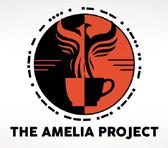
The Amelia Project concerns an agency that offers its clients an unusual service – faking their deaths and providing new identities for them to assume. The podcast consists of interviews with clients, highlighting the absurdities of their current lives and their desperation for a fresh start with biting wit that anyone with a dark sense of humour will appreciate.
3) Alice Isn’t Dead
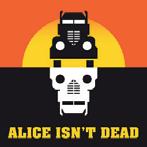
A truck driver on a road trip across the United States searches for her missing wife, who she knows is, in fact, not dead. Along the way, she encounters strangers in diners, a small town lost in time and a dark conspiracy that stretches beyond her wife’s disappearance. It is a chilling mystery that paints a vivid picture of the deserted American road.
4) Wolf 359

Doug Eiffel is the communications officer in the USS Hephaestus, a space station orbiting a red dwarf star. Eternally bored in his position, Doug spends most of his time annoying his crewmates and looking for ways to avoid responsibility. However, he and the rest of the crew soon learn that their survey mission has deeper implications for their survival. Science fiction fans will love the isolated space setting and the dysfunctional cast of characters.
5) Critical Role

Critical Role is perhaps the most popular piece of media that utilises tabletop roleplaying games to tell stories. The cast primarily plays Dungeons & Dragons and has finished two long-running campaigns with a third currently underway – all of which include thrilling adventures, dangerous magic and a cast of loveable adventurers played by some of the most talented voice actors in the business. Anyone interested in captivating fantasy storytelling, or D&D in general, should give this a chance.
Images: Wikipedia, ameliaproject.com, and spotify.com
Collage: Sechaba Ntshehi
found that rap music creates “positive visual imagery”, a psychotherapeutic technique often used by sportsmen to envision the places they would like to be. Rap provides an alternative path, a progression to a better mental state. Although the grade may not have changed, the brain is reminded that it is not less than wonderful. With notifications from Instagram, Whatsapp messages from varsity groups, and TikTok in general, it feels impossible to keep your brain focused on that page-long equation or definition of Jurisprudence. Although one could select the “Do not disturb” setting on your device, that often does not seem to be enough. Studies have found that the genres such as classical, jazz, ambient and instrumental rock have the effect of holding the brain steady long enough to navigate the rocky waves of distractions. The same song affects everyone differently. There is no fixed formula to deduce what genre could work for certain situations. But knowing what music genre could provide one with the comforting outlet they have been searching for could come in handy.
Critiques of capitalism are nothing new in film. From Modern Times (1936) to Parasite (2019), the medium has offered various harsh, moving and contemplative critiques of the broken economic system. However, there has been a recent uptick in a certain type of capitalist critique in film, a category colloquially known as “eat the rich” films.
“Eat the rich” films are usually darkly comedic and satirical in nature, with the characters and scenarios being exaggerated caricatures or archetypes. This can be seen in, for example, the archetypal characters of “critic”, “finance bros”, and “pretentious fan” found in The Menu (2022). Another feature of these kinds of films is that they often contain surrealist elements that serve to emphasise the absurdity and excess in the lifestyles of the rich. Sorry to bother you (2018) is a great example of this.
The most common thread between all these films, however, is the sense of catharsis they offer the audience. In a time of heightened class tensions, exacerbated by the pandemic and the cost of living crisis, the mass cultural hunger to watch, revel and delight in the suffering and downfall of the upper class is unsurprising.
If this seems like a genre that you are interested in, here are some recommendations to get you started:
Glass Onion: A Knives Out Mystery (2022)
Triangle of Sadness (2022)
Hustlers (2019)
Ready or Not (2019)
The Platform (2019)
In 2022 there was a peak in “eat the rich” movies and it seems like the trend is poised to die out in a few more years. But as long as capitalism exists there will always be art that is made to criticise it; that art might just take on new forms.
Fatima BalaThe brand new UP Film Society hosted its first screening on 14 March in the Humanities building. The society was founded by Lathan Dooms, an English Honours student, who stated that his goal for the society is to “set up a space where students, alumni, faculty, whoever, can just come through and enjoy a movie together, and then they can talk about it afterwards”. He continued “I really believe in the communitybased bonding experience that a lot of movies can be, especially the more out-there movies. When you witness something maybe strange or interesting together and talk about it, it’s a great bonding experience.” Dooms also added that the society will be “putting priority towards
older films, non-English-language films, and weirder filmscontent and form-wise… The kind of things that a lot of movie theatres in South Africa wouldn’t show because they’d be afraid to offend their audience.”
The film shown at the first screening was Punch-Drunk Love, a dark romantic comedy directed by acclaimed filmmaker Paul Thomas Anderson. Adam Sandler stars as Barry Egan, a lonely man who meets his perfect match and finally has a chance at love but must first atone for a past mistake in order to be with her. The film not only accepts but revels in contradictions. Equal parts sweet and slightly unsettling, it hinges on a masterful and unexpected performance by Adam Sandler and was a hit with the society as a whole. Max Milella, a member of the society, said about the
Spending time with friends is a recipe for a good time, but even the best nights could use a little something to spice things up. These five things are sure to help you make memories with your friends on a Friday night. Usually, one would not want to waste precious time with friends watching a movie, but this is the perfect way to get tipsy.
As a group, decide on a comedy or an infamously cringeworthy film and take a sip every time a reoccurring event in the film happens.

For example, Shrek has a surplus of inappropriate jokes that were intended to keep the older audience entertained. Twilight is a particularly effective film for this one as well. Whether you take a shot whenever Bella bites her lip or Jacob takes his shirt off, everyone is guaranteed to get tipsy.
Alternatively, there is Rage Cage. This exciting, and somewhat anxiety-inducing, drinking game only requires a few plastic cups, ping pong balls, and alcohol. Start by pouring some of the alcohol into each of the cups and line them down a table large enough for everyone to gather around. Two people begin the game by drinking from the cup closest to them. Next, they must bounce the ball into the cup, and only once they have done so may they pass the cup to the next person to their left. The next person must bounce the ball into that same cup and pass it on again. Should the person on the right successfully bounce the ball into the cup before the person on the left, their cup must be stacked onto the left person’s cup.
Then the person on the left must pass the stacked cups on, take a new cup and start the process again. This continues until all the cups are finished and the game ends. Once in the rhythm of it, this game is a hilarious way to watch the deterioration of hand-eye coordination as everyone becomes more tipsy.
Cards Against Humanity is a popular card game among the ever-so-slightly offensive and dark-minded community. Unfortunately, the odds are not always in your favour, and you could get the most devastatingly dull cards in the deck. After a few drinks, however, anything is bound to have your friends cackling. Avoid the awkward silences, and laugh until your stomach hurts.
Karaoke is fun, but a lot of people have stage fright, especially when it comes to singing in front of friends. This is nothing some liquid courage cannot fix. Being tipsy is the perfect state of mind to get up in front of everyone, sing (if you are still able to read the lyrics on the screen) and enjoy doing it. Additionally, there is nothing quite as momentous and memorable as seeing the shy friend come out of their shell.
Finally, the best way to end the evening (and possibly prevent a hangover the next day) is to head straight to McDonald’s. Those chicken nuggets and shoestring fries will never taste as good as when you are tipsy. The toy from the Happy Meal can be a souvenir of the awesome night. These five activities will be worthwhile and are a wonderful way to bond with friends. Most importantly, stay safe and drink responsibly.
film: “It’s really cool seeing Adam Sandler in a serious role. It was a really interesting movie.” Discussion on the film ranged from the importance of colour to the effectiveness of the sound design, with most agreeing that it was a fascinating, if occasionally stressful, viewing experience. Films for future screenings range from Japanese horror to classic Hollywood, as the society intends to showcase the breadth and history of cinema as an art form.
The society is currently based in room 16-2 in the Humanities building, but intends to move to a bigger venue as more people attend future events. Screenings currently take place on Tuesday evenings at 18:00, and any students interested in film are encouraged to join, discuss and share in the cinematic experience.


When you cannot stare at your laptop screen any longer, going outside and moving your body can be a great distraction. Here are some tips to turn your walk around campus into a hot girl walk. At its core, a hot girl walk is a normal walk; being a hot girl is a state of mind. However, anyone can be a hot girl; its not exclusively for the ‘girlies’
1) An integral part of the walk is to listen to a podcast. It can be about anything, but PDBY recommends these four podcasts: Rotten Mango for all the crime lovers, Anything Goes with Emma Chamberlain for the girlie going through an existential crisis, and Honeydew Me for... educational purposes.
2) Grab a hot girl approved iced coffee to keep you hydrated. Now the iced coffee is definitely not just for aesthetic purposes, because sipping on that straw is therapeutic. And the best part is you can literally find it anywhere.

3) Explore campus. Go to places you have never been before. Hatfield Campus has some beautiful spots including the garden behind the math building as well as the back entrance of the plant sciences building. But if you are tired of main campus, why not take the short journey to South Campus?
The most important aspect of the girl walk is to romanticize your life while drowning in your university work. Sure, you might have a million assignments due, but you deserve a break anyway. Even though this trend might prioritise living your best ‘delusional’ life, at its core, it advocates for self-care, which is the most important thing at the end of the day.
Visual Credit: Sourced
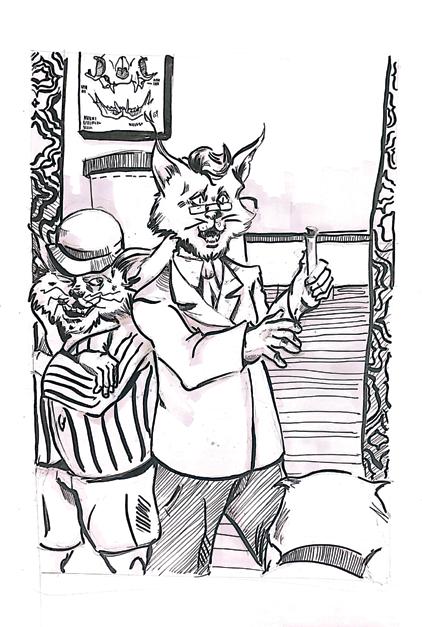


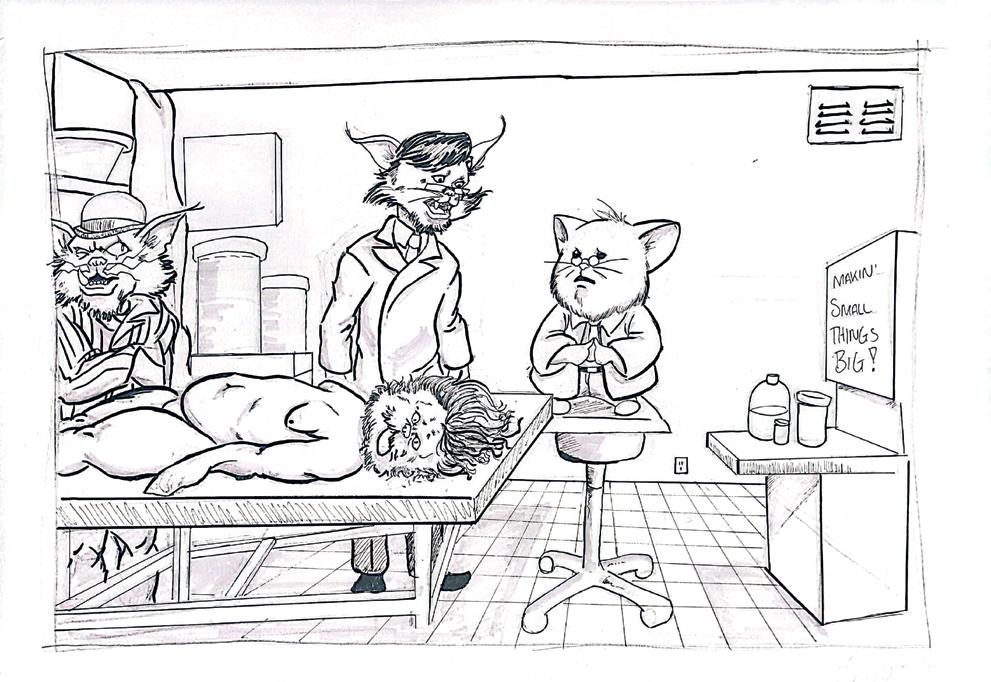

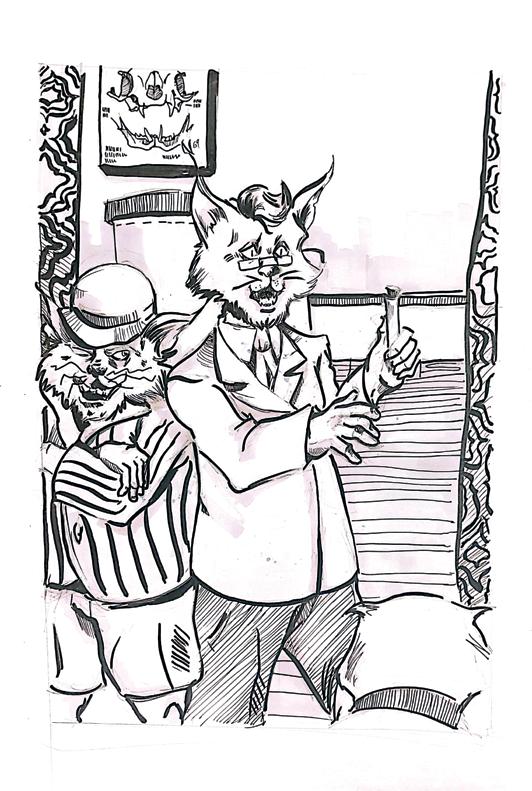
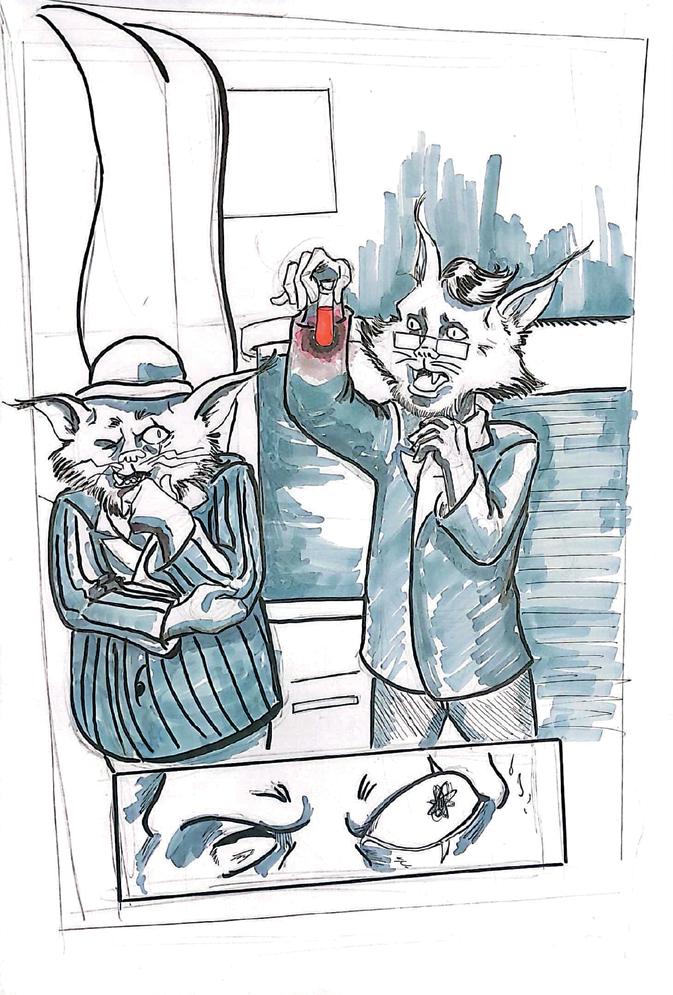
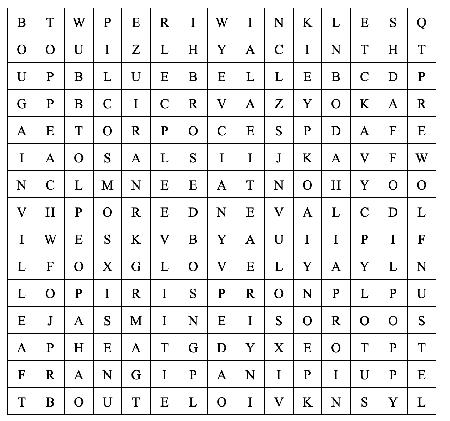
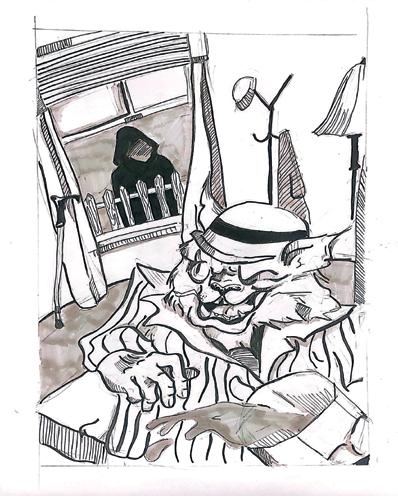
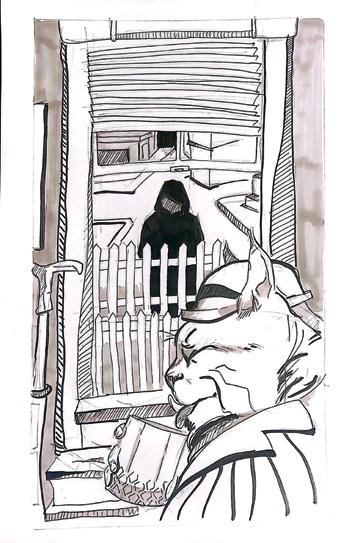

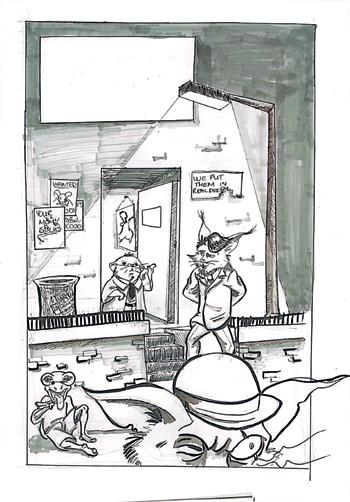
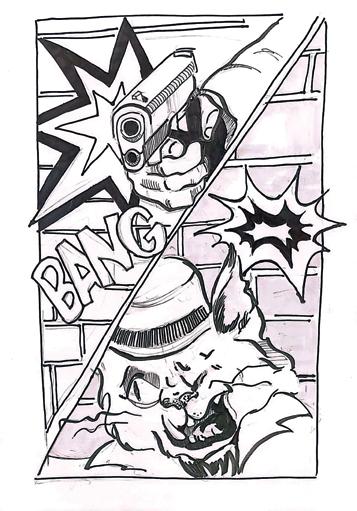
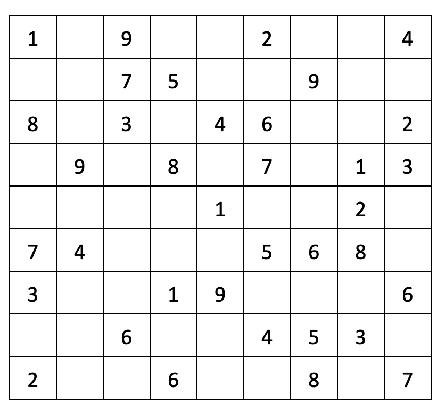
What do you get when you cross the rising global popularity of South Korean media and reality shows? Netflix’s Physical 100. The show’s premise is rooted in identifying the perfect male and female physique in various sport and athletic spheres. The competitors range from bodybuilders to national fencers to fitness influencers, who all compete in various challenges.
The show consists of five main events: a one-on-one brawl, two- team events involving the movement of sand and a ship, a delegate challenge, and the finale. The nature of many of the challenges favoured a particular body type, especially early in the competition: heavyset, large, and strong. It was evident that the contestants drew the same conclusions as they opted for the bigger, male competitors when choosing teammates and chose to faceoff the teams or individuals they felt lacked in comparison. Irrespectively, the leaner competitors held their own even with the odds stacked against them. Ultimately, the show is one of survival. One cannot criticise the competitors for making the decisions to win. Even when it is seemingly unfair. As the challenges progressed, the focus became less strength orientated and more endurance orientated. This is where many of the ‘favourites to win’ started to drop out of the competition. The finale, which was a series of challenges mixing different physical elements, saw most body types in the medium sphere. It is interesting to note that the finalists were not the competitors with the most defined muscles, which proves that aesthetic does not equal functionality.
It is questionable whether one can consider Physical 100’s assessment of the ideal human physique as containing all the relevant information. The competitors were fierce and those who moved on deserved to. However, by
reviewing the finale alone it is evident that the elimination rule altered the odds for everyone. The finale had four rounds: a body tug of war, tile flipping, shuttle running and rope pulling. Each of these events would have played to each of the finalists’ strengths and weaknesses differently. So, if measured overall, the winner could have been someone else. This goes for the whole competition. Had the assessment been on scores tallied from the first event till the last, the results would have differed drastically.
The show intially asks ‘What is the perfect physique?’ but it is more than that. The show brings entertainment value, sportsmanship and respect amongst the competitors to the fore. The demonstration of each individual’s willpower is what truly makes it worthwhile. Not only is it a must watch series but it also allows viewers to learn from it.
Micaela Wathen
Monday, 13 March marked the commencement of the Student Sport Basketball League. The season will be jam-packed with action as 23 teams from various residences, faculty houses and societies participate for more than just bragging rights. PDBY spectated the final two games played on Court A.
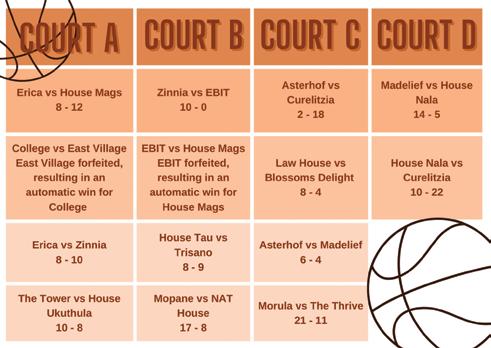
Erica vs Zinnia
The ladies were on each other’s heels from the first whistle. Both teams made great use of turnover opportunities to rack up points in the first half. Erica played with a strong physical defence well into the second half, but they were
outdone by Zinnia, who scored the winning points in the final seconds of the game. While the highlight of the game was the three-pointer from Zinnia, it was an overall compelling event.
The Tower vs House Ukuthula
The first half saw The Tower players manoeuvre skillfully around a sturdy Ukuthula defence, and the ball remained in The Tower’s possession for the majority of the first half. However, this start did not deter Ukuthula, who came into the second half with a ‘One, two, three. Hustle!’ attitude. Both sides had great build-ups in their plays but were unable to sink any of their shots. With the clock ticking down, The Tower were able to score a two-pointer to win the game.

Christiaan Steenkamp
When it comes to movies, there will always be a group of people that will say the book is better. They will say it takes the reader on a rollercoaster ride of mixed emotions and explores the themes and events in much greater depth. Well, what if that same experience could happen with sport? Is there anything for the sport fanatics?

The answer is sport documentaries; a new trend in the film industry that focuses on behindthe-scenes moments in sports. This allows the fans to see what happens outside of the spotlight and feel part of their favourite sport in a new and exciting way. For the first time fans can see all the tempers flaring, the hard work and the emotions involved. For those wanting to see if their sport has a documentary, PDBY has created a list of trending and blockbusting sport documentaries you can watch.
Drive to Survive: A must watch for all F1 fans. This series shows the viewers all the crashes, behind-the-scenes arguments and race strategies involved with their favourite teams.
Full Swing: A brand new golf documentary with the same producers as the Drive to Survive series. It also investigates the controversial LIV golf tournament.
Rise: A documentary on Siya Kolisi’s awe-inspiring rise to becoming captain of the Springbok rugby team. For those addicted to the human element of someone’s personal journey, this is a must watch.
FIFA Uncovered: This documentary focuses its gaze on a unique aspect of football. How corruption became a deep-rooted part of the beautiful game and just how far reaching this organisation’s influence has gone.
Break Point: Another documentary created by the producers of Drive to Survive. It follows the journey of up-and-coming tennis stars like bad boy, Nick Kyrgios, and American hotshot Taylor Fritz.
Bad Sport: Think true crime meets professional sports. It showcases scandals in sports like you have never seen before and puts on display when conspiracies became truths.
The drama involved in these shows comes second to none. It unlocks a secret filled chest consisting of intense locker room speeches and the truth behind some of the most controversial moments in sport. A true sports lover’s feast awaits.
Olebogeng Sebowa
On 20 February, Kyle Cyster made his debut as an FNB-Tuks player for Varsity Cup. Cyster appeared to be the shortest, yet one of the team’s greatest players. He is 1.73 metres tall and weighs 71 kilograms, which makes him one of the smallest players in the tournament. However, Cyster keeps showing us that whatever he lacks in stature he easily compensates for in skill. He proved this when he scored the first try for Tuks against Shimlas in their Varsity Cup opening game. This was his eighth Varsity Cup try in 11 games.
He is a Nelson Mandela University alumnus and played for the Madibaz last season. When asked how he got his fleet-footed dodging skills, Cyster said, “I used to be a naughty little ouk when I was younger. My mother had to bear the brunt of my misbehaviour. Her rage would frequently erupt, and she would chase after me. That’s how I honed my dodging skills.” Once he has the ball in his hand, Cyster is hard to stop and is always referred to as an “Yster” by commentators.
When asked about his rugby background, he said, “My friends and I used to play ‘touchies’ in the streets of the Strand, where I grew up, in the afternoons. I began playing rugby in Grade 8 at Hottentots-Holland High School. I was terrible at first. I was mostly on the B or C teams. Only in matric did I begin to make an
impact on the field. I was named the school’s player of the year.” He began as a winger, but after becoming frustrated with not receiving enough ball time, he switched to fullback. Cyster and a few friends decided to visit Gqeberha in 2019 where he also played for Eastern Province’s under-20 team in addition to the Madibaz.
For Cyster, his father, Edward Gelant, had the most significant influence on his rugby career. “My father was a good player himself. He may have played a few scrumhalf games for Western Province. My father was a perfectionist when it came to rugby. You either did something right or wrong. This meant that he was constantly pushing me to improve. I will be eternally grateful for that.” He then added, “My father has passed away, but he remains my greatest inspiration. I still wonder what he would have said if he had seen me play. I’m playing to honour my father’s memory. I want him to be happy.”
Cyster claims that before joining Tuks, he was not the best defender. “The big guys would frequently flatten me. However, good defensive structures are highly-valued at Tuks. It compelled me to work on improving my tackling abilities. I’m no longer afraid to go for the tackle. Because I’m small, I have to start low.” According to Cyster, he came to Tuks to search for greener pastures and PDBY wishes him all the best in his future endeavours.
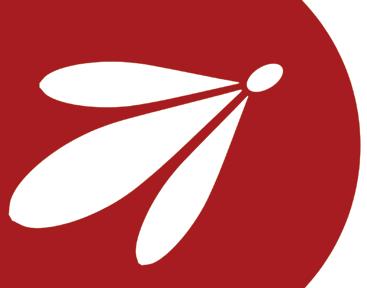
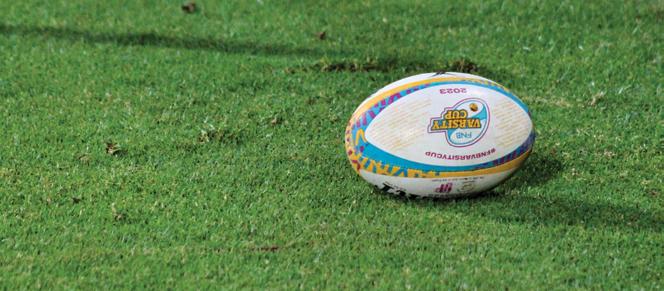
Franco Marais
Monday night on 20 March, and UP Tuks have just lost 46-35 to arch-rivals Maties. That makes five straight losses, which puts Tuks at the bottom of the log, with a real threat of being relegated. This is the poorest form UP Tuks have seen in the Varsity Cup since its inception. With all hopes of reaching the playoffs dashed and questions that need to be answered, what awaits the former Varsity Cup champions?

The game comes first and, as is all too common this season, Tuks fell behind in the first half. By the time the 50-minute mark was reached, the score was at an embarrassing 36-7. However, when their opponents received a yellow card, the men in white decided it was time to show a bit of backbone and tried to fight back. Zander Reynders led the charge by scoring the first try in Tuks’s rally. This was followed by Zandré Kruger’s moment of magic where he sidestepped the outside centre of Maties to get himself on the scoreboard. Kruger also played a pivotal role in the third try. But with the score at 36-28, Maties made sure to punish the non-stop errors from Tuks’s side, and after a swift conversion kick and grinded out try, the game was well beyond saving. Even with a final try from Tuks, it never seemed like they would be able to secure the victory in this game.
Mpho Mabelesa and Franco MaraisWith the recent form of Tuks rugby in the Varsity Cup, PDBY have decided to roll back the years in a unique way with an interview from former Tuks first team manager, Jan Hendrik Robbertse. Robbertse managed Tuks in the Varsity Cup from the inaugural tournament in 2008 to 2010.
He was asked about the greatest challenge that he faced as manager and said it was when, “In 2008, the last three games were played in George, at a so-called ‘bumper weekend’. We had to play three matches in six days, which were very tough”. According to Robbertse, Tuks had to win all three games to qualify for the semi-final, which they successfully did. However, they lost the semi-final to an unforgiving last-minute penalty that they conceded to Maties. The upside to this loss is that Tuks later went on to win the Varsity Cup two years in a row in 2012 and 2013. Hopefully for the current fans this can be an omen of what to expect going forward, that this year is nothing more than a stumble for future success.
Robbertse was also asked about the original vision of the Varsity
Cup, and how it has changed since its establishment. “Varsity Rugby via intervarsities and the Super Bowl, before 2008, gave Varsity Rugby players the opportunity to play against each other. The Varsity Cup just took this to a higher level and gave student rugby players the opportunity to play in a tournament that was on such a level (almost like a professional tournament). The travel and television exposure elevated the profile of student rugby players and gave them exposure to study and perhaps be drawn into the professional rugby setup at a later stage. After a few years, universities started to use professional rugby players, already contracted at the unions, to play in the Varsity Cup. “Instead of creating new opportunities for student rugby players to become professional like in the beginning, this was in my view, contrary to the original intention.” With this, Robbertse brought to light an issue that has been stated a few times regarding the Varsity Cup. That is whether it is ethical to use contracted professional players in a student focused tournament. This leaves us with a question. Should Varsity Cup only be for student players, or should it be rebranded as a unique youth development competition centred around universities?
On 15 March, the 2023 Res Rugby season officially kicked off. The u/20s played the first game and served as a great entrée for the senior matches that followed. PDBY made sure to cover the two main senior games: OP Village vs House Mopane and Morula Legae vs House Tau.
The defending champion, OP Village, faced former semifinalist House Mopane in the first match of the season. The score was 0-0 for most of the first half, an indication of how closely the residences fought to win the match. As both teams battled it out, OP soon built themselves a comfortable 20-12 lead. However, the match ended abruptly when loadshedding flooded the field in darkness. However, there was very little time left to play at this point, so Mopane would have needed a miraculous play to make their comeback.
In the second match, Morula Legae and House Tau tried their best to win. Ultimately, Morula Legae dominated, proving themselves to be worthy contenders with a 14-0 win over House Tau. Now the question remains, was Morula
Legae’s defense simply rock solid, or did House Tau need to sharpen their attack?
One thing can be concluded from watching the senior games: Res Rugby is back and this season promises to be a great one for the fans.
With rookie mistakes, failures at all set pieces and an insidious level of selfishness in the backline, the question needs to be asked: who or what is to blame for this fall from grace? Is it because the players do not seem to listen to their coaching staff, or have they simply lost heart? Or is it that Nicolaas Luus, firstteam coach, has reached an impasse with his coaching style? The answer to this question might never be known, but one thing is certain – something is terribly wrong at UP Tuks.
With games left to play against Johannesburg locals Wits and UJ, the time to save face is now. Because if UJ can defeat Maties in the next round and Tuks fails to pick up the win against Wits, it will mean relegation to the shield. As always, PDBY will be covering these final two games and will be hoping for the best outcome alongside all the fans.
 Photo: Katharine O’Ehley
Photo: Cleo Qin
Photo: Katharine O’Ehley
Photo: Katharine O’Ehley
Photo: Cleo Qin
Photo: Katharine O’Ehley
